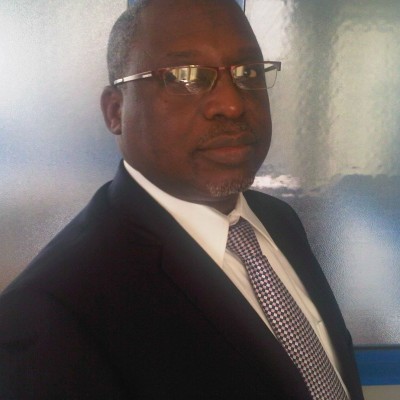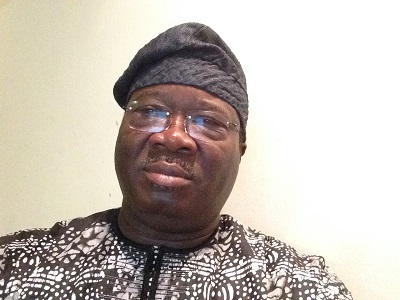Form Conglomerate To Acquire Larger Vessels – Jibril tells Nigerian Ship-owners

By Kenneth Jukpor
Alhaji Ibrahim Jibril is the President of Chartered Institute of Logistics and Transport (CILT) Nigeria and the Director, Maritime Labour at the Nigerian Maritime Administration and Safety Agency (NIMASA). In this interview, Jibril bares his mind on the development of seafarers in the country, challenges confronting ship-owners, need for a national logistics policy and masterplan, etc. He also gives an assessment of the nation’s transport sector in 2017. Excerpts:
The dearth of seafarers has become a recurring decimal in the nation’s maritime sector. NIMASA has put in a lot with the Nigerian Seafarers Development Programme (NSDP) to solve this issue. How would you appraise the efforts?
Over a decade ago, the International Maritime Organization (IMO) called all maritime nations in the world on a campaign called “Go to Sea”. This was as a result of the dearth of seafarers globally and in Nigeria we introduced NSDP as an intervention in order to develop seafarers to solidify the nation’s Cabotage regime, generate foreign exchange and contribute to the world maritime development.
Today, we are celebrating 239 cadets trained in various aspects of seafaring having attained seatime experience. What is the implication of this on the Nigerian maritime domain?
The benefits of this development to Nigeria are enormous because these seafarers would enable us solidify our Cabotage requirement and it would also enable us relate better with other maritime nations because we would produce many seafarers that are able to compete on the international scene.
This equally means that when the nation is able to have a national carrier, it would have competent hands to man these vessels so Nigeria would not only enjoy the benefits of having these vessels but also enjoy the benefits our having Nigerian seafarers onboard the vessels.
Many of them have been trained as Naval cadets while others trained in crucial areas like ship building and repairs. So we are also developing the core of Nigerian youths that would eventually start building ships in the country.
The Arab Academy Vice Chancellor has stressed that it is the responsibility of the government to provide an enabling environment and financial support to enable ship-owners thrive and absorb these cadets. Looking at the challenge of the Cabotage Vessel Finance Fund (CVFF); how would you say Nigeria has fared in supporting ship-owners?
There is no doubt that ship-owners in Nigeria are contributing their quota to develop the industry but they do not have enough resources to get many vessels that can absorb cadets and the right calibre of vessels they require.
With the drive of the Nigerian Minister of Transportation, Hon. Rotimi Amaechi, we should expect that a national carrier would be available in the near future. However, I would love to see indigenous ship-owners coming together to form a conglomerate to acquire large carriers.
Subsequently, we expect to see that the vessels operating under the Cabotage regime are fully owned by Nigerians. And just as the Vice Chancellor of the Arab Academy has said, the government has to collaborate with these indigenous ship-owners to enable them own platforms that would also provide seatime and employment opportunities for our seafarers.
Another major issue in the sector is the insecurity of the nation’s waters; the Navy and NIMASA have put in a lot to dissipate the problem in recent times but the international community doesn’t seem to realize this. Global insurance companies place extra-war risk charges on vessels coming to Nigeria, a problem which adds to the cost of shipping in the country. How do we resolve this issue?
The problem of piracy and armed-robbery at sea on the Nigerian waters have reduced greatly; let me commend the Nigerian Navy and the Army for putting immense efforts which has led to relative peace on the nation’s waters.
We expect to see further drastic reduction in crimes on the nation’s waters if not a total elimination in the next few years. At that point the extra-war risk charges would be removed because the world would know that there is peace in that region.
In recent times experts have called for a national logistics policy and a masterplan. As President of the Chartered Institute of Logistics and Transport (CILT) Nigeria, what should this policy be about and how would it transform logistics and transportation in the country?
These campaigns are ideal. The nation needs a national logistics policy as well as a masterplan. Nigeria needs the national logistics policy first before the masterplan comes in place. We would continue to advocate for the logistics policy on the platform of CILT Nigeria. We expect the relevant Ministries, Departments and Agencies (MDAs) to rise and accept this call to start drafting a national logistics policy which should help the country effectively run the logistics and supply chain industry.
Prior to your emergence as President of CILT Nigeria, you lamented over the absence of statistics for logistics and transport in the country and promised to deliver this. Have you been able to achieve this?
What CILT Nigeria is trying to do at the moment is to automate our systems and as soon as that is done we would be able to capture enough data. This automated platform would be the basis for capturing logistics data in the entire Nigeria space. Once we are able to have this platform in place, we would start sensitizing the sector so as to have a data collection awareness nationwide that would help us develop a database for the logistics industry in Nigeria.
Looking at the year 2017, how would you appraise the transportation sector in Nigeria and what are your expectations for 2018?
On the menu of the Federal Government, we are aware of the emphasis on the railway projects and road rehabilitation projects. The developments of the railway projects across the country would be the highpoint for the transport sector in 2017; although there were also several road rehabilitation projects. However, in 2018, I expect to see more activities in the railway mode especially speedy completion of the railway projects.
In aviation, there are several initiatives that have been outlined and I am sure that the Ministry of Transportation is keen to carry out these developments which would see to the improvement of aviation activities; improvement of the facilities, infrastructure, etc.
For the road mode, it is encouraging to know that the Department of Roads and Mass Transit in the Ministry of Transportation is coming up with programmes which will see us regulating the road transport as against the unregulated style we used to have in the past. So, in 2018 we look forward to a better regulated road transport system with more rehabilitation on the road infrastructure. Generally, there is a lot of expectation for the Ministry of Transportation to deliver in 2018.
What are your plans and programmes for Chartered Institute of Logistics and Transport (CILT) Nigeria in 2018?
CILT Nigeria is partnering with Clarion Events to host other West African nations on issues that affect logistics. The maiden edition of Multimodal Exhibition was last year and it was a big event; but we expect the 2018 edition which holds in Lagos, Nigeria in January to be a bigger and more successful event.
In March 2018, CILT Nigeria is bringing the CILT African Forum to Abuja, Nigeria for its African Forum Convention which would be held from March 14th to March 16th, 2018. This would also be a big event for CILT Nigeria.
In June 2018, we are going to have the CILT International Convention in Poland and we expect to have not less than 25 countries attending that global event. These are some of the major activities lined up for the Institute in 2018.
Copyright MMS Plus.
All rights reserved. This material, and other digital content on this website, may not be reproduced, published, broadcast, rewritten or redistributed in whole or in part without prior express written permission from KINGS COMMUNICATIONS LIMITED.






